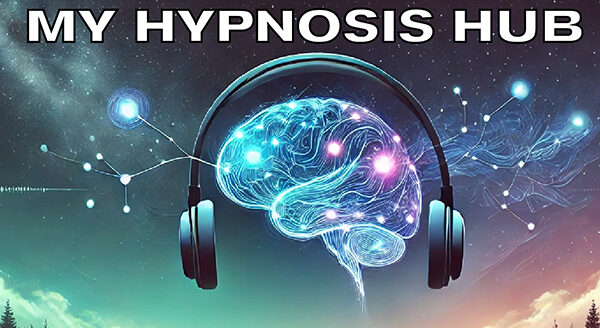Hypnotherapy for Gaming Addiction: Reclaim Your Time and Mental Freedom
Hypnotherapy for gaming addiction can be a powerful tool for those feeling trapped by endless virtual worlds, high-score pursuits, and the all-consuming allure of next-level achievements. Whether you’ve tried setting parental controls on yourself, forcing “screen-free” days, or uninstalling games only to re-download them a week later, the magnetic pull of gaming can feel impossible to resist. This doesn’t mean you lack willpower or self-control; rather, gaming addiction involves deep-seated triggers and thought patterns that standard discipline may fail to uproot. In this article, we’ll explore the medical aspects of gaming addiction, how hypnotherapy can address those underlying mechanisms, and practical steps for regaining emotional balance. By the end, you’ll see that reclaiming your time and mental freedom is not just possible—it may be easier than you think.
If you’re ready to embark on a structured approach, consider this Gaming Addiction Hypnosis Audio.
Hypnotherapy for Gaming Addiction -Table of Contents
- Medical Perspective: Understanding Gaming Addiction
- Why Gaming Becomes Addictive
- How Hypnotherapy for Gaming Addiction May Help
- Rewiring the Brain: The Role of Hypnosis in Behavioral Change
- Practical Steps to Integrate Hypnotherapy into Recovery
- Success Stories: Breaking Free from the Screen
- Maintaining Balance: Beyond Hypnotherapy
- Conclusion: Taking Back Control and Moving Forward
1. Medical Perspective: Understanding Gaming Addiction – Hypnotherapy for Gaming Addiction
Defining Gaming Addiction
Increasingly recognized by mental health professionals, gaming addiction—or “Gaming Disorder”—is characterized by persistent or recurrent gaming behavior that takes precedence over other life interests and daily activities. According to bodies like the World Health Organization (WHO), the key indicators include:
- Loss of Control: An inability to stop or reduce gaming despite clear negative consequences.
- Escalation: Gaming sessions grow longer or more frequent, overshadowing relationships, work, or school.
- Continued Use: Gamers persist in these behaviors even when fully aware of their detrimental impact.
Health Consequences
While it might appear less harmful than substance abuse, gaming addiction still carries psychological and physical risks: disrupted sleep, repetitive strain injuries, poor diet, and a higher likelihood of emotional issues like depression or anxiety. The mental strain can be intense: guilt over neglecting responsibilities, irritability when forced to stop playing, and a sense of emptiness when not immersed in a game. Such patterns highlight why comprehensive support is vital—and why we might ask: can hypnotherapy for gaming addiction truly offer a route to sustainable change?
2. Why Gaming Becomes Addictive – Hypnotherapy for Gaming Addiction
The Allure of Virtual Achievements
Video games often use reward systems, leveling up, loot boxes, and points to hook players. These elements mimic the psychological mechanics of slot machines or other forms of gambling. Each small win or “ding” of success releases a burst of dopamine, reinforcing the behavior. Over time, the brain expects or even craves this cycle of reward, fueling extended play sessions.
Social and Emotional Fulfillment
Beyond bright graphics and epic quests, many gamers also find social connection in multiplayer environments. Friendships or guild bonds form around shared objectives, offering a sense of purpose that real-life might temporarily lack. For players facing stress or dissatisfaction in their jobs or personal lives, the virtual world feels safer, more exciting, or simpler to navigate—leading them to spend hours upon hours online, ignoring real-world challenges in the process.
Underlying Stress or Anxiety
Some individuals prone to anxiety or depression might find games a soothing or distracting sanctuary. Unfortunately, the short-term relief can lead to a vicious cycle: the more you escape real-life problems, the less capable you feel of confronting them, which then pushes you deeper into gaming. Hence, tackling these root emotional factors becomes crucial. Hypnotherapy stands out by targeting subconscious beliefs that entrench escapism.
3. How Hypnotherapy for Gaming Addiction May Help –
Going Beyond Surface Solutions
The go-to approach for tackling a gaming habit often involves unhooking consoles, limiting screen time, or parental controls. While these external measures help curb immediate temptations, they don’t necessarily address the psychological reasons driving the addiction. In contrast, hypnosis probes beneath daily actions, focusing on the emotional triggers and habitual thought patterns that keep gaming’s allure so strong.
Emotional Reframing
Hypnotherapy aims to reshape the subconscious associations that gaming might hold—safety, achievement, camaraderie. Instead of artificially limiting access to games, you rewire your emotional responses, finding healthy ways to experience fulfillment or stress relief. Over time, this reduced emotional dependency can cut cravings, making it easier to put down the controller or say “no” to one more round.
Boosting Self-Worth and Resilience
Chronic gamers sometimes grapple with lower self-esteem, especially if real-life tasks seem daunting compared to mastering digital landscapes. Hypnotherapy can help restore a sense of competence and possibility in non-virtual arenas—work, school, or personal projects. By reinforcing a more empowering self-image, it reduces the impetus to retreat into gaming whenever adversity strikes.
Ready to explore a specialized session? Consider this Gaming Addiction Hypnosis Audio.
4. Rewiring the Brain: The Role of Hypnosis in Behavioral Change – Hypnotherapy for Gaming Addiction
What Happens During Hypnosis?
During hypnotherapy, you enter a trance-like yet aware state. The conscious mind, typically filled with anxieties or critical self-talk, steps aside. This allows direct communication with the subconscious, where automatic behaviors and beliefs reside. The therapist or audio program introduces new messages—like “I find joy in real-life achievements,” or “I manage stress through healthy outlets”—that can replace compulsive gaming cues.
Calming the Reward System
Gaming addiction thrives on dopamine spikes. Hypnosis helps calm hyperactive thought processes, potentially easing the constant craving for that next digital thrill. By guiding you into deep relaxation, these sessions can gently teach your brain that relaxation, creativity, or even moderate exercise can also yield a rewarding sense of accomplishment—no screen required.
Strengthening Impulse Control
A hallmark of addiction is the difficulty in resisting sudden impulses. Hypnosis may fortify the mental “pause button” between an urge to game and the act of picking up a controller or logging in. Once this moment of choice is extended, it’s easier to redirect your attention or reaffirm your decision to do something else—like read, socialize, or attend to real-life responsibilities.
5. Practical Steps to Integrate Hypnotherapy into Recovery – Hypnotherapy for Gaming Addiction
1. Recognize the Need for Professional Help
While mild gaming habits might respond to self-driven solutions, entrenched addiction often requires professional input. Talk to mental health counselors or psychiatrists knowledgeable about behavioral addictions. Their medical perspective can clarify the severity of your condition and whether you need additional therapies or medication for underlying issues like anxiety or depression.
2. Seek Quality Hypnotherapy Resources
Look for credentialed hypnotherapists who specialize in behavioral addictions or find well-reviewed audio programs focusing on gaming addiction. Evaluate the approach, reading testimonials or seeking professional referrals. Ensure the style resonates with your preferences—some might be more direct, while others employ gentle, progressive visualizations.
3. Commit to Consistency
Hypnosis thrives on repetition. Schedule brief daily or weekly sessions—10 to 20 minutes each—and track changes in your gaming impulses or mood. Over time, these micro-sessions accumulate, fostering deeper self-awareness and shifting ingrained responses. Just like going to the gym, it’s the steady routine that builds mental “muscle.”
4. Reinforce with Tangible Lifestyle Changes
Even as you adjust your subconscious patterns, real-world actions remain essential. Keep gaming devices in a less accessible area, limit your phone’s game apps, or set up screen-time blocks. Pair these external constraints with your internal rewiring from hypnotherapy. The dual approach often amplifies results, as each method compensates for any gaps in the other.
5. Celebrate Progress
Gaming addiction recovery is typically not linear—you might have relapses or good weeks followed by sudden cravings. Acknowledge incremental successes: skipping a gaming session to enjoy dinner with friends, unsubscribing from gaming newsletters, or even taking a short walk when the urge arises. Over time, each positive choice cements your new, healthier mindset.
6. Addressing Myths About Hypnotherapy and Gaming Addiction
Myth 1: “Hypnosis Will Control My Mind”
Despite how pop culture portrays it, hypnotherapy doesn’t override your moral or logical judgment. You remain aware and capable of rejecting any suggestion that clashes with your values. Rather than controlling you, hypnosis merely paves the way for your subconscious to adopt beneficial viewpoints more readily.
Myth 2: “One Session Is Enough”
Adopting new habits or discarding entrenched ones rarely happens instantly. While a single session might bring initial insights, the real transformation emerges over consistent practice. Regular booster sessions or dedicated self-hypnosis can keep your newfound perspectives fresh and effective.
Myth 3: “Only Weak-Willed People Get Addicted to Gaming”
Addiction isn’t about weakness; it’s about how certain rewards or emotional needs exploit the brain’s natural wiring. People from all walks of life can become hooked on gaming. Hypnotherapy helps by bolstering self-control mechanisms and unraveling the emotional triggers behind the obsession, not by labeling you “weak.”
7. Moving Forward: Replacing Old Habits with Healthier Outlets – Hypnotherapy for Gaming Addiction
Step Into Real-World Engagement
Breaking the grip of gaming addiction frees up mental space and time for other pursuits—creative hobbies, relationships, or career advancement. With hypnosis reinforcing your self-assurance, you’ll be more open to trying new activities that bring lasting fulfillment. This shift from virtual to real-life engagement fosters a sense of genuine achievement that’s typically more stable and meaningful than a digital scoreboard.
Nurturing Emotional Health
As you disentangle from gaming, you might notice emotional voids or difficulties in coping with stress that gaming once masked. Hypnotherapy can help build healthier stress management techniques, from mindfulness to brief body relaxation exercises. Embracing these strategies makes relapse less likely, as you won’t feel compelled to return to digital escapism whenever life’s challenges loom.
Strengthening Relationships
Compulsive gaming often sidelines personal connections—friends, family, or romantic partners can all feel neglected. With your attention refocused on the present, you can invest in bridging any emotional distance created by your addiction. Hypnosis cultivates empathy and presence, so nurturing those relationships becomes a positive experience rather than an obligation.
8. Conclusion: Taking Back Control and Moving Forward
Can hypnosis help gambling addiction? While it may not be a silver bullet, hypnotherapy offers a compelling route to tackle the deep-seated drives and emotional triggers underpinning excessive gaming. By guiding your subconscious to reject mindless or destructive behaviors in favor of satisfying, healthier pursuits, hypnosis encourages an internal shift that external restrictions alone often fail to achieve. If you’re ready to step away from screens and toward a life defined by genuine experiences, supportive relationships, and self-mastery, explore how hypnosis can add fresh momentum to your journey.
If you’d like structured assistance, consider this Gaming Addiction Hypnosis Audio. Coupled with determination, real-world strategies, and possibly professional guidance, you may find freedom from the gaming loop is closer than you realize.
Ultimately, the path away from compulsive gaming is also a path toward emotional resilience, self-discovery, and a more fully inhabited sense of self. Each day you reduce your screen time or resist a new release, you’re forging a mindset capable of handling life’s ups and downs without digital crutches. And that sense of empowerment might well extend to other areas of challenge—revealing just how powerful the union of hypnosis and personal resolve can be.
For more insights into how hypnosis can address various addictive behaviors, explore our guide on Can Hypnosis Help with Addiction. Shaping a balanced, free life is within your reach, so long as you take that first mindful step.






One Comment